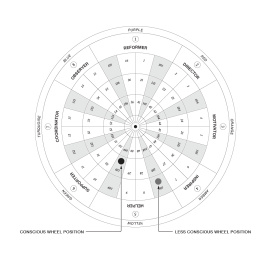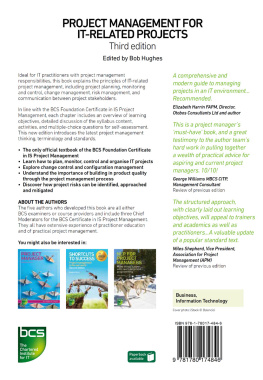Claire Hughes Johnson - Scaling People : Tactics for Management and Company Building
Here you can read online Claire Hughes Johnson - Scaling People : Tactics for Management and Company Building full text of the book (entire story) in english for free. Download pdf and epub, get meaning, cover and reviews about this ebook. year: 2023, publisher: Stripe Press, genre: Business. Description of the work, (preface) as well as reviews are available. Best literature library LitArk.com created for fans of good reading and offers a wide selection of genres:
Romance novel
Science fiction
Adventure
Detective
Science
History
Home and family
Prose
Art
Politics
Computer
Non-fiction
Religion
Business
Children
Humor
Choose a favorite category and find really read worthwhile books. Enjoy immersion in the world of imagination, feel the emotions of the characters or learn something new for yourself, make an fascinating discovery.
- Book:Scaling People : Tactics for Management and Company Building
- Author:
- Publisher:Stripe Press
- Genre:
- Year:2023
- Rating:5 / 5
- Favourites:Add to favourites
- Your mark:
- 100
- 1
- 2
- 3
- 4
- 5
Scaling People : Tactics for Management and Company Building: summary, description and annotation
We offer to read an annotation, description, summary or preface (depends on what the author of the book "Scaling People : Tactics for Management and Company Building" wrote himself). If you haven't found the necessary information about the book — write in the comments, we will try to find it.
Scaling People : Tactics for Management and Company Building — read online for free the complete book (whole text) full work
Below is the text of the book, divided by pages. System saving the place of the last page read, allows you to conveniently read the book "Scaling People : Tactics for Management and Company Building" online for free, without having to search again every time where you left off. Put a bookmark, and you can go to the page where you finished reading at any time.
Font size:
Interval:
Bookmark:

There are thousands of ways to run an organization and make decisions, so why do you do it the way you do? Maybe you strongly believe that management is a practice of leading by example, so you try to emulate the most important behaviors for your teams success, like preparing thoroughly for a customer meeting or leaving detailed comments in a design review. Maybe you believe that no decision should be made without data, so you require all of your teams to conduct experiments with measurable results before they make major decisions. Or maybe youre a master delegator, so you spend most of your time matching the right talent with the right problems, then position yourself to unblock obstacles so that nothing stands in the way of them achieving great results.
Whether you know it or not, youve probably already formed many of your own management operating principlesthe guidelines you use to make decisions and get work done. These principles act like a personal value system for how you manage your work and your teams. Theyre guardrails for your management approach and decision-making. Knowing and understanding how they influence your work can make you a better manager, not least because you can articulate them and help others understand how you work. Theyll also guide the way you build and implement your company-wide core frameworks.
Before we dive into these frameworks in the coming chapters, I want to share my own principles. Ive relied on many management strategies over the course of my career, many adapted from the work of admirable managers and leaders to whom I and many others owe a great debt. Over time, Ive refined the backbone of how I lead into the following principles, and I believe they form the foundation of my success as a leader and a manager:
- Build self-awareness to build mutual awareness.
- Say the thing you think you cannot say.
- Distinguish between management and leadership.
- Come back to the operating system.
If you believe in authentic leadership, as I do, you know that I cant tell you how to manage and lead in a style that is true to your preferences and behaviors. You will have your own set of principles. Nevertheless, I believe that this short list is a strong foundation. It applies to all styles of leadership and is critical to effective management.
All these principles are about one thing: building trust. If youre not self-aware, how can others trust your feedback about their own abilities and behaviors? If youre not direct with your opinions and judgments, how will people know where they stand and trust that you have their interests in mind? If youre not clear on whether youre managing to a defined goal or charting an entirely new vision as you build a company, how will your team trust that youre leading them to success? And if you dont maintain a foundation of consistency and stability, how will those around you know what to expect?
Patrick Collison, the cofounder and CEO of Stripe, and someone with whom Ive had the pleasure of working for several years, recently sent me a link to a post by Ted Gioia entitled How I Became the Honest Broker. In a prior career that involved complex dealings with governments and other stakeholders, Gioia learned that the only way to make progress was to find the person whose influence and power is built solely on a reputation for straight talk and trustworthy dealings: the honest broker who played the long-term game. It was such a powerful realization that, in his second career as a writer and reviewer, Gioia aspired to become the honest broker for his readers. Patrick remarked that he thought I would relate, which I certainly did. In fact, I was flattered that hed recognized my fundamental commitment to building trust. Seek to be the honest broker, for your colleagues and especially for your team.
The other tenet I believe in steadfastly is Know thyself. Its such an old adagea Delphic maxim, even!that people disagree on which ancient coined the phrase. It may be counterintuitive to say that leadership, management, and company building all start with self-awareness, but I strongly believe that to be the case. Self-awareness is the most important of my four principles, so well begin there.
Self-awareness is the key to great management. The other three operating principles are much more about functioning in the moment as a manager, but this is the one that underpins them all. By starting with yourself, you can create an environment in which everyone is self-awarewhich, in turn, leads to mutual awareness among team members.
Many people think management is about other people. I think management starts with understanding what youre good at and what you need to work on. Your team wont be able to succeed if you cant describe yourself and your contributions. More importantly, you wont be able to build an effective and complementary team if you dont know what strengths you can contribute and what capabilities you lack.
Self-awareness has three components: understanding your underlying value system, identifying your innate preferencesyour work style and decision-making tendenciesand being clear about your own skills and capability gaps.
At Google, I worked with a manager whom Ill call Eli. Elis reports liked working for him, his teams delivered results, and he cared a lot about the company. Eli was a good manager. But we had a problem: He told his team everything. When we were planning a divisional change that would affect many teams, he informed his reports early, making other managers look uncommunicative. When we were working on a new compensation process, he told his reports and introduced uncertainty into the teams dynamic, letting his fears guide his language with announcements like Its a mess and we dont know our compensation plan yet, so Im totally stressed. His reports started to feel anxious about the process and rejected it before theyd had an opportunity to learn why we were putting it in place and how it might benefit them. Eli and I had a couple of difficult 1:1 sessions to discuss his behavior. In every meeting, Eli would agree with my assessment of his behavior, but as soon as he left the room he would revert to his old habits. I felt stuck.
Not long after one of these frustrating conversations, my HR partner helped me organize a manager training for my division with Stan Slap, the author of Bury My Heart at Conference Room B. Stan led us through a session on values in which he asked all of the managers to reflect on the values that were important to us and where we thought they came from. He invited participants to come onstage, in front of hundreds of other managers, to share one of those values. Eli raised his hand.
This was the story Eli told: When he was around seven or eight, his mom fell very ill. Later, he would learn that she had breast cancer, but at the time no one in his family told him what was going on. They wanted to keep things as normal as possible. Of course, things were far from normal, and Eli noticed how much his mother was not herself, physically or emotionally. His mothers condition deteriorated, and she eventually had to go to the hospital. Eli was not allowed to visit her. One day, while his mother was in the hospital, Elis stepdad came to pick him up from school. They drove to Elis favorite diner and ordered pancakes. While Eli poked at his pancakes, syrup dripping down the sides, his stepdad told him that his mom had died.
Elis value was transparency.
That story has stuck with me for a long time, particularly two lessons I took from it. First, you never know someone elses story. When youre finding a report difficult to work with, theres almost always a deeper reason for their behavior thats worth trying to understand. Second, some people dont necessarily understand why they act the way they do. If you dont understand how your actions are driven by your underlying beliefs, youll never be able to adapt them, no matter how hard you try.
Font size:
Interval:
Bookmark:
Similar books «Scaling People : Tactics for Management and Company Building»
Look at similar books to Scaling People : Tactics for Management and Company Building. We have selected literature similar in name and meaning in the hope of providing readers with more options to find new, interesting, not yet read works.
Discussion, reviews of the book Scaling People : Tactics for Management and Company Building and just readers' own opinions. Leave your comments, write what you think about the work, its meaning or the main characters. Specify what exactly you liked and what you didn't like, and why you think so.










